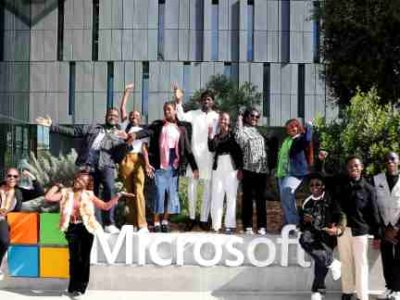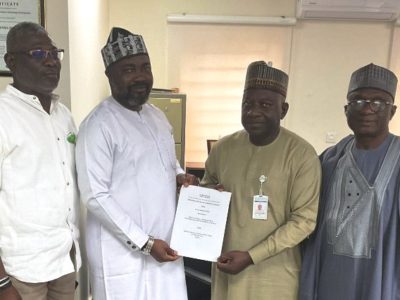Digital economy has fostered the rapid developments in emerging technologies, providing opportunities for talented youths in Africa to become global leaders through harnessing their potentials, said Director General of National Information Technology Development Agency (NITDA), Kashifu Inuwa Abdullahi.
Speaking at the recent Leaders Without Borders Annual Business Summit and International Honors 2023 in London with the theme: “Business Beyond Borders, Global Partnerships and Sustainable Investments,” the NITDA boss said digital economy has become a major definer of productivity and self-development among young people.
RELATED: California Metropolitan University confers honorary doctorate degree on NITDA boss Abdullahi
He told the audience at the global event that featured many entrepreneurs and thought leaders that NITDA, as a government agency established in 2001, has helped many Nigerians to access ICT tools which as at 2001, contributed less than 0.05% to Nigeria’s Gross Domestic Product (GDP).
The story has changed; more than 120 million Nigerians now have access to the internet and not just computer. ICT now accounts for 18.5% of the country’s GDP. NITDA has remained focused as an IT regulatory and development agency, Abdullahi said.
His words: “The NITDA Act was passed into law 2007 and by 2012 we had the National ICT policy and in 2019 we had the National Digital Economy Policy and Strategy (NDEPS) which is a major shift in the agency’s policies. Previous policies are about the use of information Technology while the later digital economy is about the use of ICT in line with the economic activities, simply meaning that technology is not the end but a means to an end”.
“The Agency’s mandates fall around developing the national digital economy ecosystem that includes; developmental regulation on how it can level the playing field for you to start and grow business, intervene in the policies and infrastructures for unserved and underserved communities, and lastly, helping the youth with seed funding to develop a proof of concept and prototype of the ideas”.
“NITDA embarked on the development of many regulatory frameworks for the Information Technology development in government establishments. The projects are to give rise to digital skills in educational institutions and rural areas and cities, so as to develop human capital and provide universal access to digital services with the aim of creating a knowledge- based economy,” he said.
According to him, the agency through its strategic relations with techpreneurs, has supported startups, IT ecosystem builders through Nigeria ICT Innovation and Entrepreneurship Vision (NIIEV) which has created employment for Nigerian youths.
Adding that to ensure Nigeria’s pool of talents were not left behind, NITDA established the National Center for Artificial Intelligence and Robotic (NCAIR), to drive and support research, development, and adoption of emerging technologies in the country.
His words: “Nigeria is thriving and has the most vibrant tech ecosystem in Africa, the fintech company which is almost twice bigger than the biggest bank in Nigeria. The biggest bank in Nigeria is about 1.6 billion USD in valuation, while Flutter wave is almost 3.6 billion USD. While looking into e-commerce, e-health, mobility and logistics, e-recruitment, agric-tech, prop-tech, and smart homes which is booming in Nigeria and Africa in general.
“In the ecosystem we have five critical stakeholders to be considered; the institution: where the universities produce the human capital which is the most valuable resources in Africa, with the youngest population with more than 70% comprises of youths under the ages of 30; the Government: which is aimed at building a conducive environment for businesses to thrive through laws, provide legal frameworks, policies, and regulations.
“The private organisations: to aid employ the human capital produced and also purchase of the goods and services rendered. The risk capital: which is a major problem in Africa? If you look at most of the top jobs in Nigeria and Africa in general, they get funding from abroad, mostly from the US and Europe. While in Nigeria we don’t have such to invest to boost the economy. And lastly the entrepreneurs: we need them also on board to understand what people want so that they can start and grow their businesses.
“The Nigeria tech ecosystem has attracted about 4.4billion USD investment between the year 2015, 2019 and 2020 respectively, and ICT contributing to about 18.5% to the nation’s GDP, and NITDA also supported about 753 start-ups in different ways through trainings, seed funding and grants.
“Recently, we took some start-ups to Riyadh for competition, which two of them emerged as global winners and won 150,000 USD each. Nigeria is thriving and has a vibrant tech ecosystem in Africa and almost 30% to all Foreign Direct Investment (FDI) into Africa ends in Nigeria.”





























